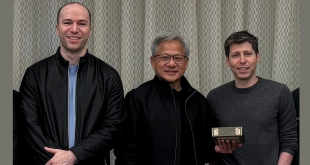UK scientists have taken the first step toward helping to solve global food shortages by decoding the wheat genome, meaning they can take the DNA data to help improve annual yields.
Dr Anthony Hall and Professor Neil Hall from the University of Liverpool and Dr. Gary Barker and Professor Keith Edwards from the University of Bristol with the help of Professor Mike Bevan at the John Innes Center managed to gain access to 95 percent of all wheat genes by conducting a five pass read through of the crop over the course of a year, according to a University of Liverpool press release.
Neil Hall said “The information we have collected will be invaluable in tackling the problem of global food shortage. We are now working to analyze the sequence to highlight natural genetic variation between wheat types, which will help significantly speed up current breeding programs. The genome sequence data of this reference variety, Chinese Spring wheat, will now allow us to probe differences between varieties with different characteristics. By understanding the genetic differences between varieties with different traits we can start to develop new types of wheat better able to cope with drought, salinity or able to deliver higher yields. This will help to protect our food security while giving UK plant breeders and farmers a competitive advantage”.
The team was able to get access to five state of the art genome analysers which can scan DNA hundreds of times faster than equipment that required 15 years to sequence the human genome, starting in 1990.
Kate Kelland of Reuters said that the wheat genome is the last of the major food crops to be sequenced. Neil Hall told her that “By understanding the genetic differences between varieties with different traits we can start to develop new types of wheat better able to cope with drought, salinity or able to deliver higher yields.”
Kitguru: This could be potentially used to feed millions of starving people across the world.
 KitGuru KitGuru.net – Tech News | Hardware News | Hardware Reviews | IOS | Mobile | Gaming | Graphics Cards
KitGuru KitGuru.net – Tech News | Hardware News | Hardware Reviews | IOS | Mobile | Gaming | Graphics Cards



Let us hope this is used for good and not wasted. A great first step in helping to feed the poor.
Marvellous news and congratulations to the bright people who dedicate their lives to making the world a better, healthier place 🙂
Great to hear, and lets hope, fingers crossed that it is put to some good use in the near future. We dont realise how lucky we are in the western world at times.
Very good news!
Although i may sound pessimistic, to the people above, im quite sure these discoveries will be perverted in some fashion later on down the road in an effort to serve some kind of nefarious purpose, on some scale.
Cryptic i know but you get that, you get that ALOT!!